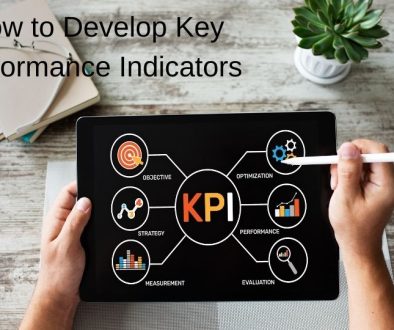Business planning for 2021. Do you really need to?
You may be thinking that it’s not worth doing a business plan with everything so up in the air now. If 2020 has shown us anything it is to expect the unexpected. It is to be prepared to radically change your business if you need to, whether that is to try to keep up with unprecedented demand or to adapt and change your business in ways you had not even imagined. So, considering the turmoil this year, it is tempting to wonder why business planning is even necessary? What is the point of spending hours making a business plan when you know it’s going to be wrong?!
In this article, we are going to discover how you can still plan and get to your goals next year. We will look at why you should have a business plan and then more importantly how you should plan. There are ways of planning that will help you stay focussed and reach your goals despite what may come your way. You can get the most out of the business planning exercise and your business will benefit. Those that succeed use their time wisely.
“An hour of planning can save you 10 hours of doing”. Dale Carnegie
LEARN YOUR WAY:
Business Planning – Why is it needed?
Afterall, no one knows everything, and we cannot plan for all events that may or may not come our way. However, that does not just mean that we should give up and not set ourselves targets, goals and milestones to achieve. If we do not have anything to aim at, how can we achieve? We need to plan so that we can stay centered no matter what is thrown our way. If we have a clear vision, we can still aim to get there even if we must take a different path.
Business planning not only gives us direction, but it also gives us focus. It is far better to focus on fewer targets and achieve them rather than try and do everything all at once. With so many options open to us it can be tempting to try and do them all at the same time. A business plan would simply restrict this wouldn’t it? Well, no it would not. Tests have shown that doing too many things results in none being done well. Choose your focus wisely.
Finally, business planning can help to spot issues ahead. Set yourself up for success by knowing what you will focus on and what will bring in your profit. If there are months that are looking tight cash-wise, you can act now to avoid having any unnecessary surprises. We can’t control everything that will happen, but we can plan how to avoid disasters that we do know about.
Having a plan doesn’t restrict you, it means you know what you plan to do and where you are going to make your money. It means you know what you will need and when you will need it.
Business Planning – What is it?
Before looking at how to produce the best plan, let’s look at what business planning is. There are many misconceptions so let’s go through the basics quickly now. Let’s start by looking at what business planning is not.
Well first, business planning is not simply about writing a document which then gathers dust that nobody uses. Nor is it just a financial “budget” which sets financial targets that everyone must meet without guidance on how to achieve them.And finally, it is not a magic wand – it will require work and a change in ways of working to be a success.
The traditional method of budgeting or planning is your typical 1-year annual budget. You and your team spend hours poring over numbers and charts to create your perfect plan for the year ahead. The problem is with this method is that no sooner is it done; it is out of date. All that time spent on something that becomes obsolete so quickly. All that time on something that is perhaps only looked at again at the end of the year. It is little wonder that no-one wants to do that, especially in unpredictable times of rapid change.
So, let us agree not to do that! Let us agree to use a much more flexible way of business planning.
There are several different types of planning but one that truly allows you and your business to address uncertainty in planning is called Adaptive Business Planning. Through this model decisions are assessed, and risks identified at each stage of the planning process on a timely basis. This means you can set a strategy that can modified, and appropriate actions taken when the need arises.
Adaptive Business Planning
Adaptive Business Planning aims to create a whole business culture and way of working that is forward looking, proactive and drives improved business performance.
The key features of this method are:
- A long-term vision broken down into 3 and 5-year objectives with quarterly goals and alternatives.
- Planning at project and activity level that involves the functional & divisional managers.
- These projects have their own set of assumptions, milestones, tasks, and budget, as well as a clear owner.
- Quarterly/ monthly reviews with the project owners and management to discuss each project and activity that make up the plan on a tactical level.
- Business Plan adjusted if required as opportunities or challenges arise.
- Business is outward looking, focused on what is happening outside the business as well as in.
The process allows you and your colleagues to respond quicker and to improve performance. This because it encourages greater co-ordination and cross functional teamwork as the team will regularly review progress and adapt accordingly. The key is to create a tactical decision-making team at the centre of the business. Opportunities and challenges should be spotted in advance, with time to adjust plans or create new ones.
What does this mean in practice?
Start at the beginning! It is best to do a high-level plan for the year, without too much detail. Then move onto the 90-day goals. Ask yourself questions; What are you going to focus on first? How? Why? Does this allow your revenue to stack up to what you need it to?
Business Planning for 90 days is great because you can focus on 3 main things in that time. You can leave everything else for now. 90 days does not feel too long but is still a good amount time to get stuck into things. At the end of 30, 60 and 90 days you can assess your progress and make changes if you need to. You can use this method at a total business level, then by team and then by individual. The goals and areas of focus are aligned. To see an example in a large matrix organisation, look at this video from Spotify.
It can take time to get used to, but you will soon be able to plan your business in quarterly cycles, so making sure you are still heading in the right direction. And if the direction must change because of forces outside your control. Then so be it. Adapt, plan, and move on. Embedding this certainly does not happen overnight. It requires commitment and leading by example.
Other requirements include:
- Training the various teams on what and how to approach planning.
- Setting up the processes and meetings.
- A change in mindset and approach to planning.
- Ongoing monthly commitment from across the business to the planning process.
Done well, these planning meetings become a core part of how the business is run and the monthly business operating cycle. The forecasting process is continuous so formal budgeting to set targets is relatively quick.
The benefits of Adaptive Business Planning are:
- A forward-looking approach to running the business, which should spot problems and opportunities with enough time to mitigate or take advantage of them, respectively.
- A regular look at the performance and milestones of the projects and activities of the plan to assess actual vs planned impact on the business.
- Continuous dialogue and discussion across the various functions and teams within the business.
- Plans that adapt to what is happening inside and outside the business.
- Reinforces teamworking and problem solving on a business wide scale, creating visibility and accountability.
Summing up
Business planning can really make you feel in control and focus on the things that drive your business forwards. Whatever your situation, a business plan for the year will help you.
If you have a plan, you can always change it, but at least you know the direction you are going. You and your team will be more focussed on where you want your business to be. We are going to go through turbulent and changing times for a while yet and putting your head in the sand about 2021 is not the way to go.
Remember:
“Productivity is never an accident. It is always the result of a commitment to excellence, intelligent planning, and a focused effort.” Paul J. Meyer
For more insights on business management and how to improve your performance, head to our YouTube channel. Subscribe now to make sure you don’t miss a thing.







